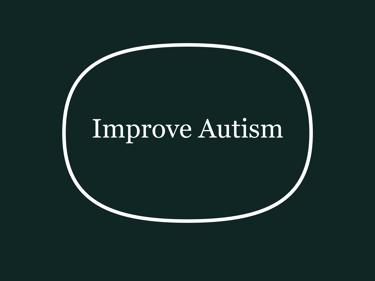Vitamin A improves the symptoms of autism spectrum disorders and decreases 5-hydroxytryptamine (5-HT): A pilot study
Authors:
Guo, M., Zhu, J., Yang, T., Lai, X., Liu, X., Liu, J., Chen, J. and Li, T.
Summary of Findings
The study, published in Brain Research Bulletin (2018), investigated the effects of a single 200,000 IU vitamin A supplementation (VAS) on children with autism spectrum disorders (ASD) in a pilot study conducted at the Children's Hospital of Chongqing Medical University. The research focused on evaluating whether VAS could improve autistic symptoms and reduce elevated serum 5-hydroxytryptamine (5-HT, serotonin) levels, which are often higher in children with ASD compared to typically developing children.
The study enrolled 33 children with ASD (28 boys and 5 girls, mean age 5.14 ± 1.33 years). All participants received vitamin A supplementation for approximately six months, and the results indicated significant symptom improvement across the group, as assessed by CARS scores and parental reports. Thus, vitamin A helped all 33 children to varying degrees.
Key Findings:
Vitamin A Deficiency in ASD: Children with ASD had significantly lower serum retinol levels compared to the control group of typically developing children. This aligns with prior research indicating nutritional deficiencies, including vitamin A, in ASD patients.
Symptom Improvement: After six months of VAS, autistic children showed significant improvements in symptoms, as measured by the Childhood Autism Rating Scale (CARS). Most neurodevelopmental symptoms reported by parents (except restricted interests) improved significantly.
Serotonin Levels: Children with ASD had higher serum 5-HT levels than controls. VAS significantly reduced these levels, and higher 5-HT levels were associated with more severe ASD symptoms.
Molecular Changes: VAS increased mRNA expression levels of retinoic acid receptors (RARα and RARγ) and decreased tryptophan hydroxylase 1 (TpH1) mRNA expression, suggesting that vitamin A modulates serotonin synthesis and related gene expression, potentially contributing to symptom improvement.
Severity Correlation: Children with severe ASD (based on CARS scores) had higher 5-HT and lower retinol levels compared to those with mild-moderate ASD, indicating a link between vitamin A status, serotonin levels, and symptom severity.
Conclusion: The study suggests that vitamin A supplementation can improve nutritional status, reduce serum 5-HT levels, and alleviate autistic symptoms in children with ASD, making it a potential adjunct therapy alongside behavioral and speech therapies.
https://pubmed.ncbi.nlm.nih.gov/29122693/
doi: 10.1016/j.brainresbull.2017.11.001
Results and specific symptom improvement
Outcome Measures with Statistically Significant Improvement (P < 0.05)
The following CARS outcome measures showed a statistically significant reduction in scores after vitamin A supplementation, indicating an improvement in these specific symptoms of ASD:
Relating to People:
ASD: 2.59 ± 0.79
ASD + VAS: 2.22 ± 0.72
P = 0.0255
Observation: The score decreased, suggesting better social interaction skills.
Emotional Response:
ASD: 2.74 ± 0.83
ASD + VAS: 2.38 ± 0.91
P = 0.0270
Observation: Lower scores indicate improved emotional regulation or responsiveness.
Body Use:
ASD: 2.44 ± 0.78
ASD + VAS: 2.18 ± 0.78
P = 0.0374
Observation: A reduction implies better coordination or reduced unusual physical behaviors.
Adaptation to Change:
ASD: 2.34 ± 0.76
ASD + VAS: 2.03 ± 0.69
P = 0.0345
Observation: Improved adaptability to changes in routine or environment.
Taste/Smell/Touch:
ASD: 2.30 ± 0.91
ASD + VAS: 1.94 ± 0.95
P = 0.0426
Observation: Lower scores suggest reduced sensory sensitivities.
Anxiety:
ASD: 2.46 ± 1.04
ASD + VAS: 2.25 ± 0.90
P = 0.0446
Observation: A decrease indicates reduced anxiety levels.
Verbal Communication:
ASD: 2.94 ± 0.74
ASD + VAS: 2.60 ± 0.68
P = 0.0450
Observation: Improved verbal communication abilities.
Non-Verbal Communication:
ASD: 2.43 ± 0.68
ASD + VAS: 2.13 ± 0.73
P = 0.0308
Observation: Enhanced non-verbal communication skills.
General Impression:
ASD: 3.01 ± 0.76
ASD + VAS: 2.58 ± 0.77
P = 0.0169
Observation: A lower score reflects an overall positive change in ASD symptoms.
Total CARS Score:
ASD: 36.83 ± 5.87
ASD + VAS: 34.46 ± 6.79
P = 0.0141
Observation: The overall CARS score dropped significantly, indicating a broad improvement in ASD symptom severity.
Outcome Measures with No Statistically Significant Improvement (P > 0.05)
For the following measures, the changes in scores after vitamin A supplementation were not statistically significant, meaning there is insufficient evidence to conclude that the supplementation had an effect:
Imitation:
ASD: 2.66 ± 0.96
ASD + VAS: 2.33 ± 0.78
P = 0.1640
Object Use:
ASD: 2.38 ± 0.66
ASD + VAS: 2.22 ± 0.80
P = 0.3567
Visual Response:
ASD: 2.23 ± 0.77
ASD + VAS: 2.31 ± 0.82
P = 0.2257
Listening Response:
ASD: 2.00 ± 0.78
ASD + VAS: 2.14 ± 0.87
P = 0.2134
Activity Level:
ASD: 2.49 ± 0.80
ASD + VAS: 2.39 ± 0.84
P = 0.8571
Level and Consistency of Intellectual Response:
ASD: 2.72 ± 0.84
ASD + VAS: 2.76 ± 0.74
P = 0.3738


